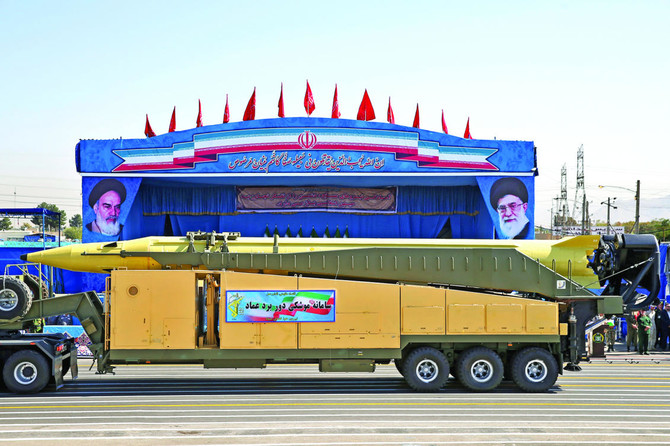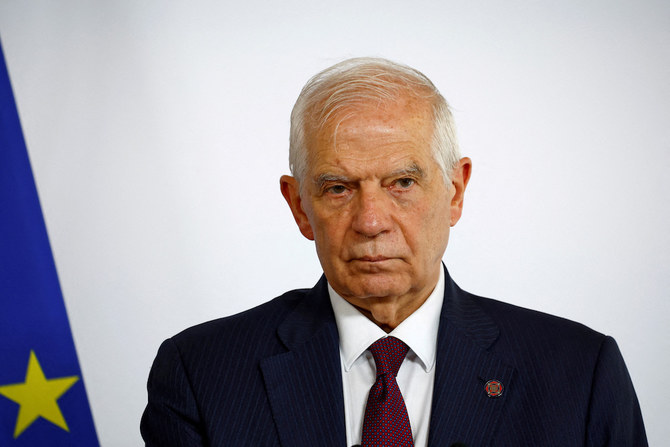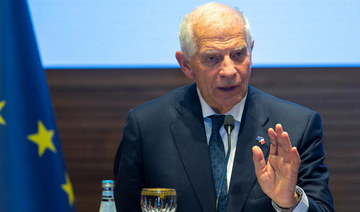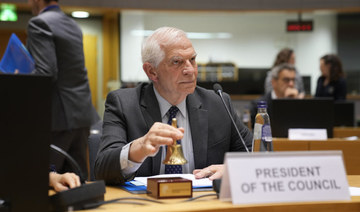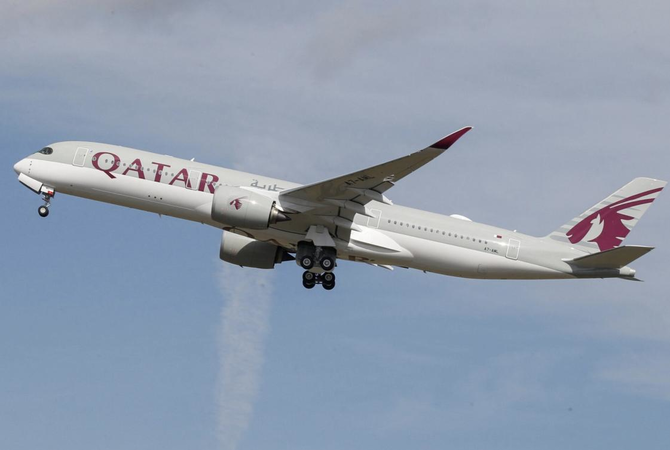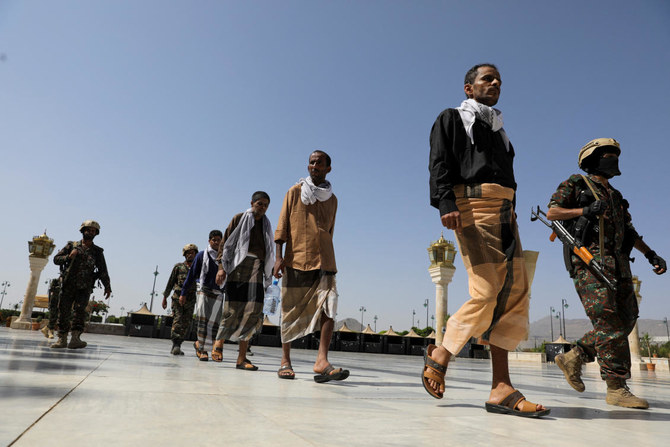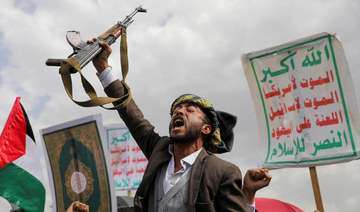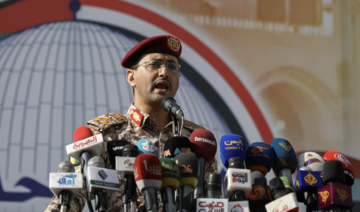WASHINGTON: Iran’s ballistic missile launch on Sunday was Tehran’s “first litmus test” for the Donald Trump administration as much as it was a regional show of force, according to experts.
With the launch coming just nine days into the Trump presidency, Iran-watchers expect the new administration to respond through the different levers at its disposal.
A more aggressive retaliation could, however, backfire, and lead to an unintended escalation in the Gulf region, the experts said.
According to US Defense officials, Iran test-fired a medium-range ballistic missile, the first of its kind since Trump took office on Jan. 20. Fox News reported that the launch “occurred Sunday at a well-known test site outside Semnan,” while NBC quoted US officials as saying the launch “was a failure, after the missile flew more than 500 miles… before crashing.”
Iran’s first test to Trump
Benjamin Weinthal, a fellow at the Foundation for Defense of Democracies (FDD), told Arab News that Iran’s missile launch is “the first litmus test for the Trump administration to counter Iran’s growing jingoism and its violations of UN regulations.”
Iran’s last test in July 2016, during the Barack Obama administration, was not met by a stern response in part because the then president did not see a violation of the nuclear deal.
Tyler Cullis, a legal fellow with the National Iranian American Council (NIAC), said that Iran’s missile tests are not technically in violation of UN Security Council Resolution 2231 because “the resolution only contains a hortatory call for Iran to refrain from certain missile activities.”
The resolution calls upon Iran “not to undertake any activity related to ballistic missiles designed to be capable of delivering nuclear weapons,” but it stops short on enforcing restrictions or penalty provisions.
Both Weinthal and Cullis agree however that the test may be a “grave mistake” by Iran, and comes at an intricate time in Washington’s new strategy toward Tehran.
“The missile test should be viewed in the context of Iranian belligerence in the region. Iran’s terrorist proxy group in Yemen — the Houthis — attacked yesterday a Saudi navy ship,” said Weinthal.
Cullis said the timing of the launch is “dangerous particularly as the Trump administration appears increasingly unmoored from the norms of US policymaking and thus unpredictable in their response to these tests.”
Trump’s response
White House spokesman Sean Spicer on Monday confirmed the missile test without delving into details on the administration’s possible response. “We’re looking into that. We’re aware that Iran fired that missile. We’re looking into the exact nature of it, and I’ll try to have more for you later,” he said.
An early response by the Trump administration was to call for an emergency meeting at the UN Security Council, slated for late Tuesday afternoon. A Security Council “condemnation of Iran’s behavior and the restoration of UN-based sanctions would be an appropriate measure,” said Weinthal.
The Trump administration could go further by pursuing economic pressure on Iran. Weinthal said that Trump’s options include “forcing Boeing airlines to cancel its planes deal with Iran and urging European companies and governments who have rushed into the Iranian market that they are putting their business relations with the US at risk.”
Cullis sees an array of options that could determine Trump’s response. The US could take more aggressive actions in the Gulf “which could provoke a direct military confrontation between the US and Iran,” or by imposing new sanctions relating to Iran’s missile program.
During the campaign, Trump threatened Iranian vessels would be “shot out of the water” if they inappropriately approach US ships, and his Defense Secretary James Mattis has been a proponent of a stronger response to Iran’s aggressive behavior in the Gulf waters.
But if Trump fulfills his campaign promise and responds with a military action against Iran, “things could quickly spiral out of control,” Cullis warned.
“For a president who believes in extricating the US from the Middle East and who has bemoaned the costs of recent American interventions there, Trump might end up inviting a much larger, a much more costly, and a much more devastating conflict,” said the expert.
Whether the Trump administration takes the diplomatic, economic or military route in its response, Weinthal said its “posture toward Iran’s regime is expected to be a sea change from the Obama days” — and Sunday’s failed missile launch is an early test for it.


